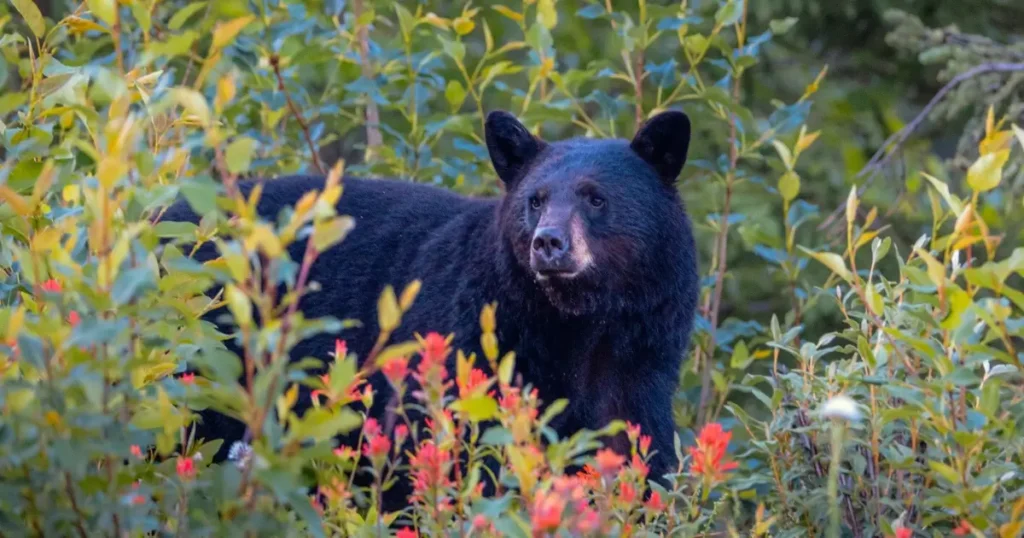A new study is confirming that British Columbia can’t kill its way out of conflict with black bears.
Do Lethal Control Interventions Reduce Human-Wildlife Conflict? Evidence from Black Bears in British Columbia, was published online with SSRN this month (October 2024). Authors Felix Pretis, Jason Hicks, Prasun Ghimire, Sara Wray Enns, and Sumeet Gulati consider the effectiveness of lethal control in reducing future conflict with black bears using a dataset of approximately 67,000 conflict events that led to 3,000 black bears being killed, over an eight-year period between 2013-2021 (data came from the Wildlife Alert Reporting Program (WARP)).
A picture showing the first page of the study and a black bear photo.
Photo by Jia FEI / Getty Images
Using various types of modelling and balancing variables such as weather, availability of natural resources like salmon, human settlements and activity in greenspaces to determine what drives conflict, researchers found clear patterns that lead to bears seeking anthropogenic food sources:
Cold spring weather and warm fall temperatures;
Low salmon abundance; and,
Low precipitation levels
Importantly, the authors note that these issues aren’t driven by so-called problem black bears: “Our results are consistent with conflict being driven by the conditions and circumstances that lead to conflict, including the availability of human food sources and a lack of natural food sources, rather than by problem black bears.”
The authors show across multiple model types that lethal control simply isn’t effective at reducing human conflict with black bears:
“If lethal control interventions were effective at permanently reducing human-black bear conflict, then we would observe a clear reduction in conflict following the lethal control of black bears. We find no evidence that lethal control interventions lead to a long run reduction in conflict when controlling for weather, human settlement presence/density, seasonality, salmon abundance, and time-invariant location conditions.”
Further, the authors note that, “unless the human drivers of conflict are mitigated, new black bears will likely continue to recolonize areas where lethal control interventions previously occurred, resulting in a continuous cycle of human-black bear conflict.”
This study adds to the evidence that the current method of killing black bears who access human food sources will not make a long-term impact; only by addressing the human elements and working holistically can lead to healthy ecosystems wherein black bears and people can coexist.
Read the full study by clicking here
Want to support black bears in your community? Learn more about our educational door hangers by clicking here, or consider becoming a supporter with a monthly or one-time donation to The Fur-Bearers by clicking here!


